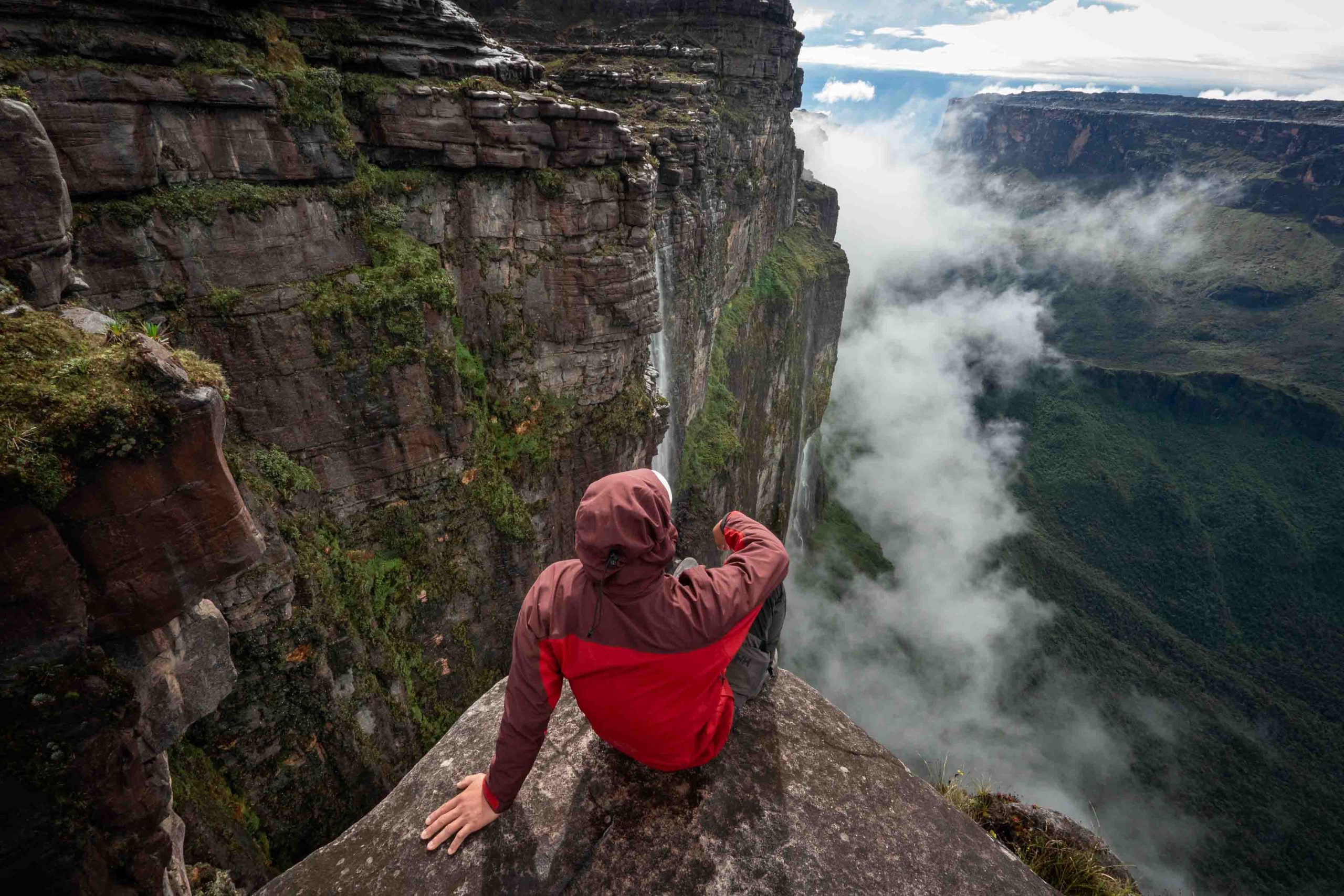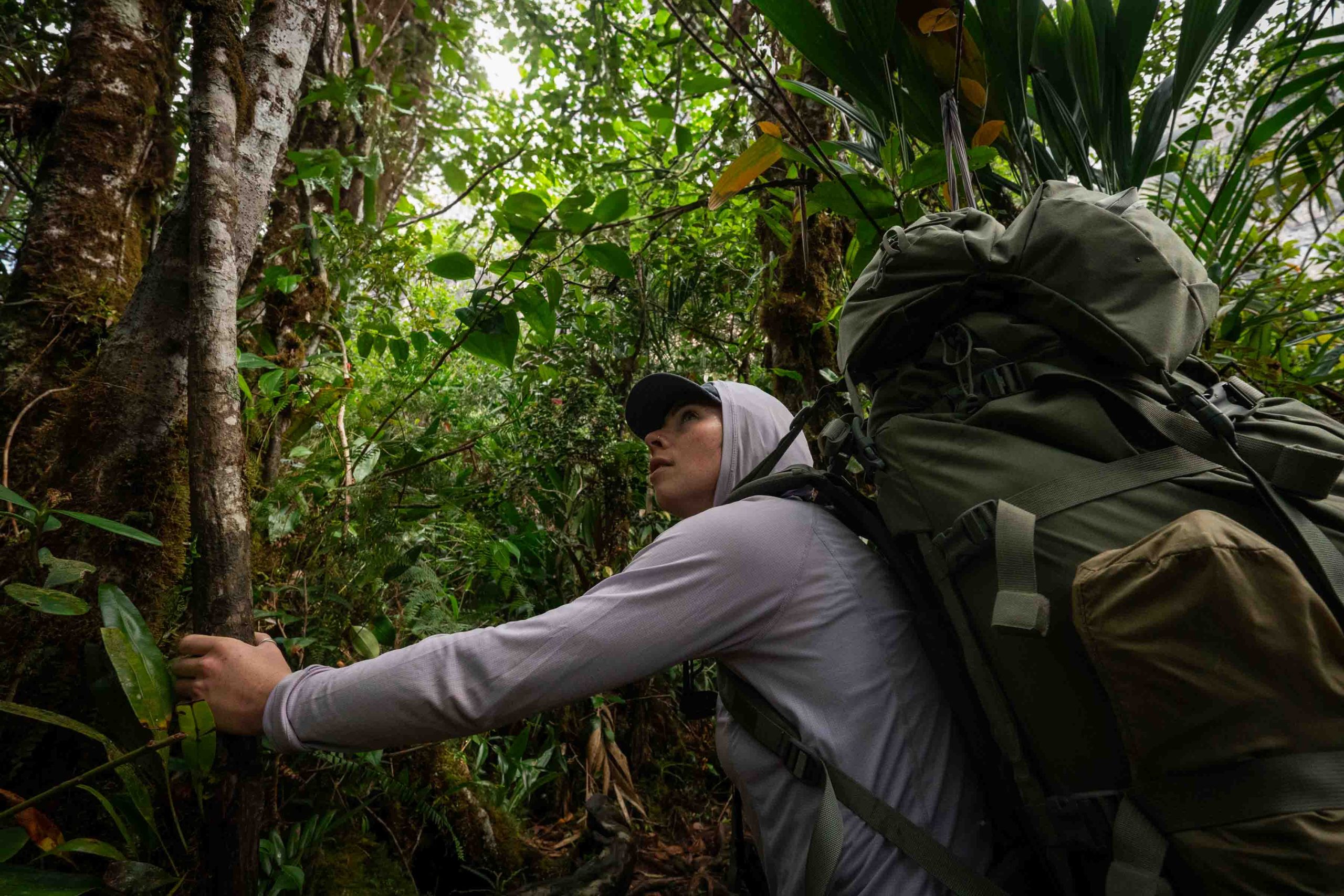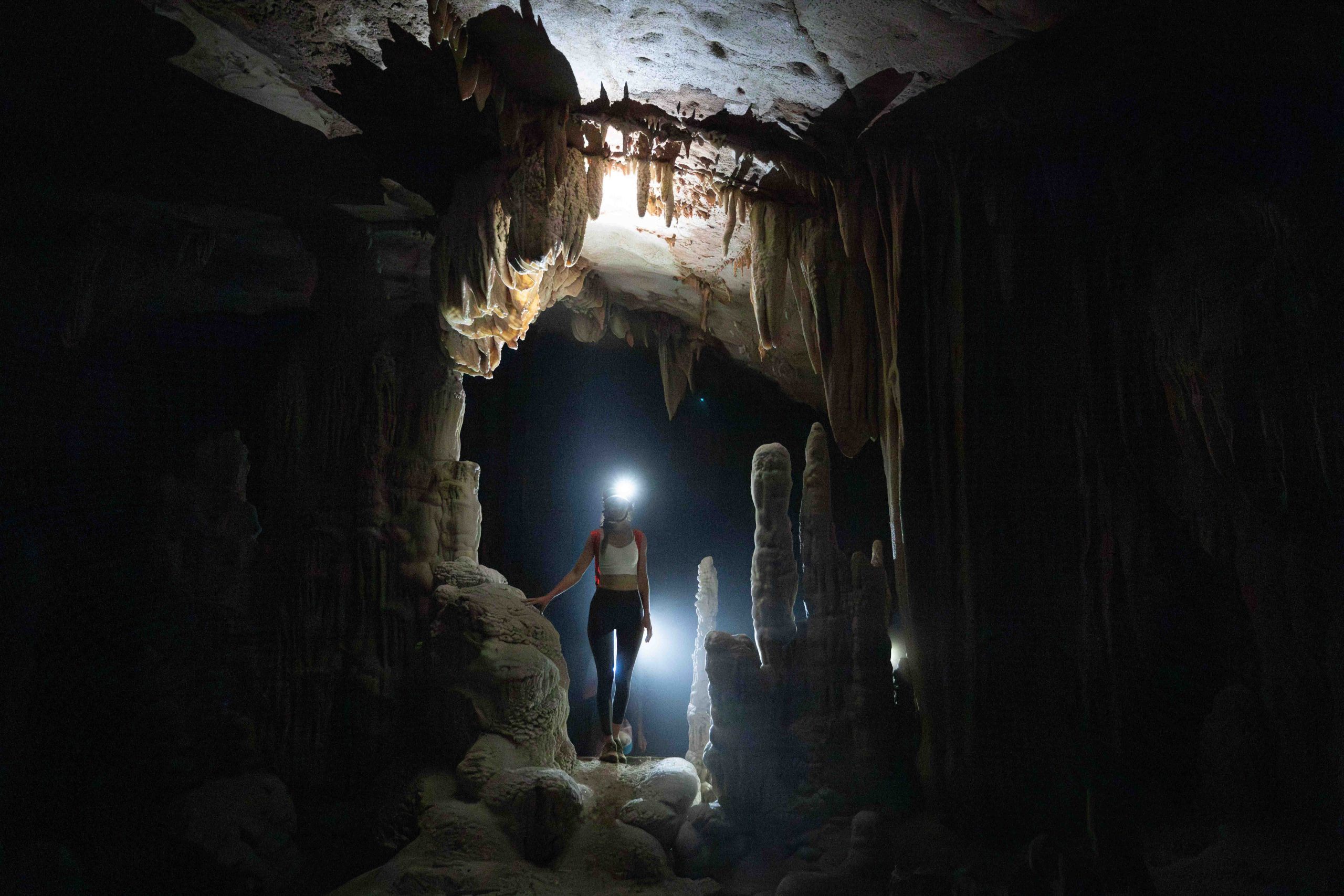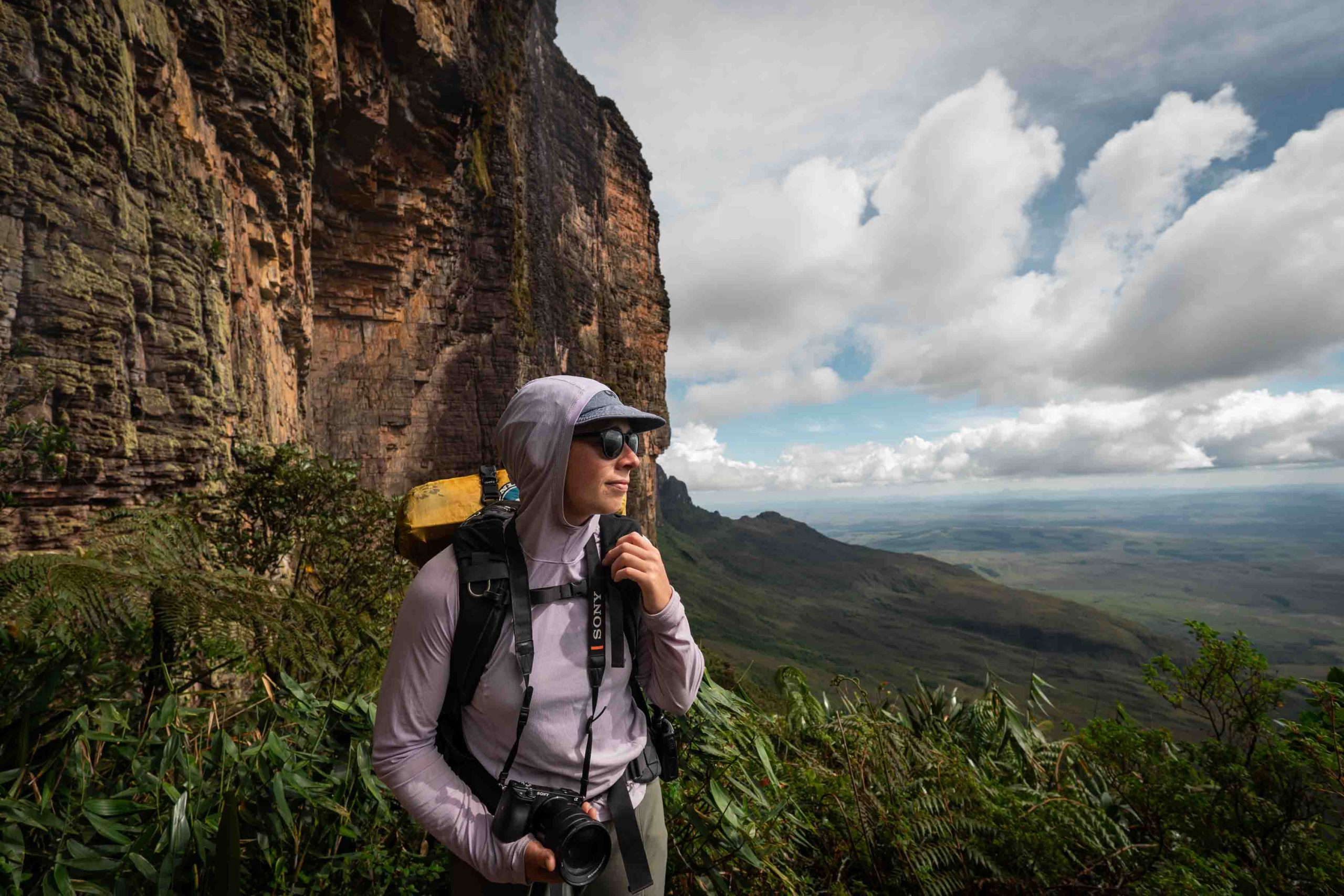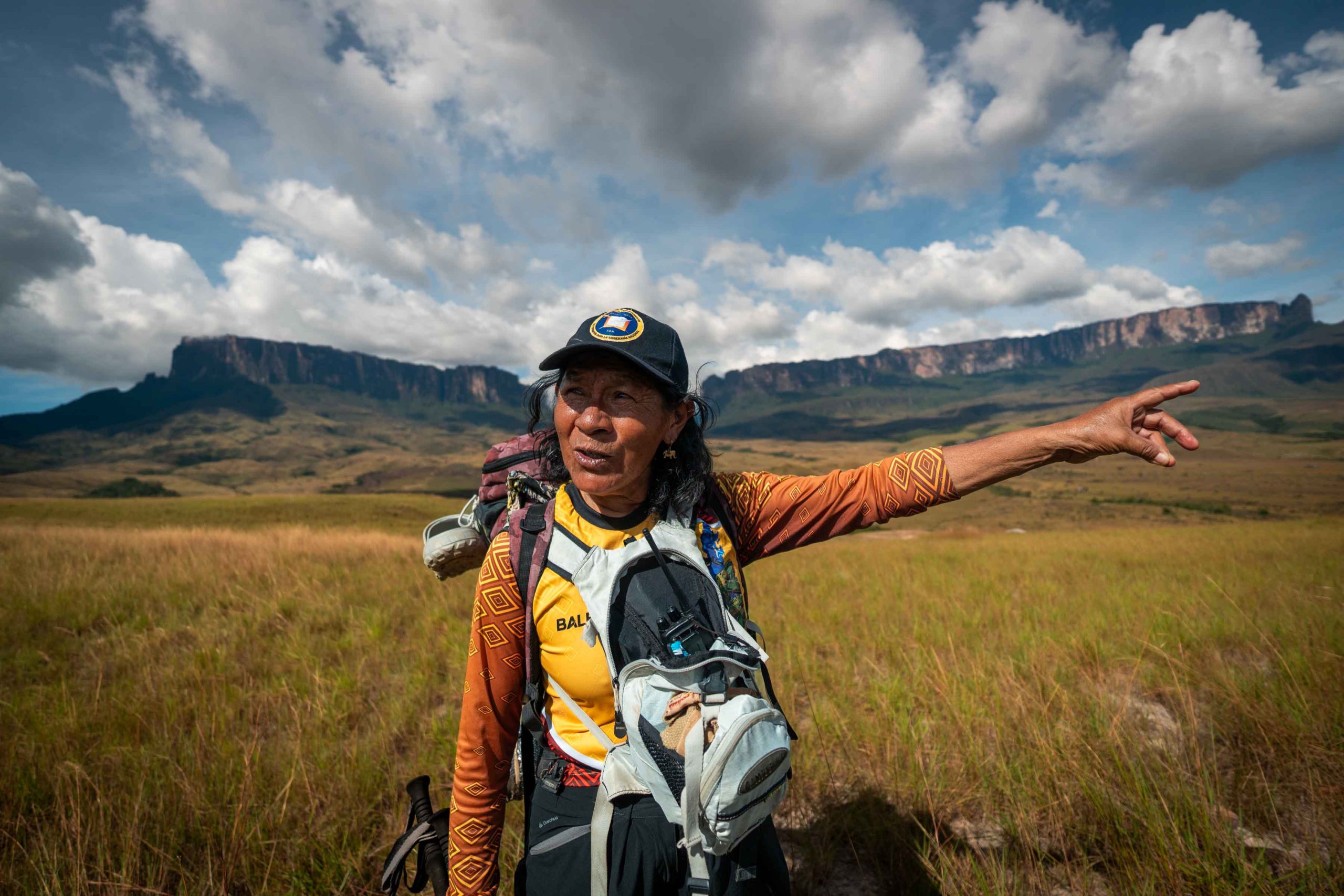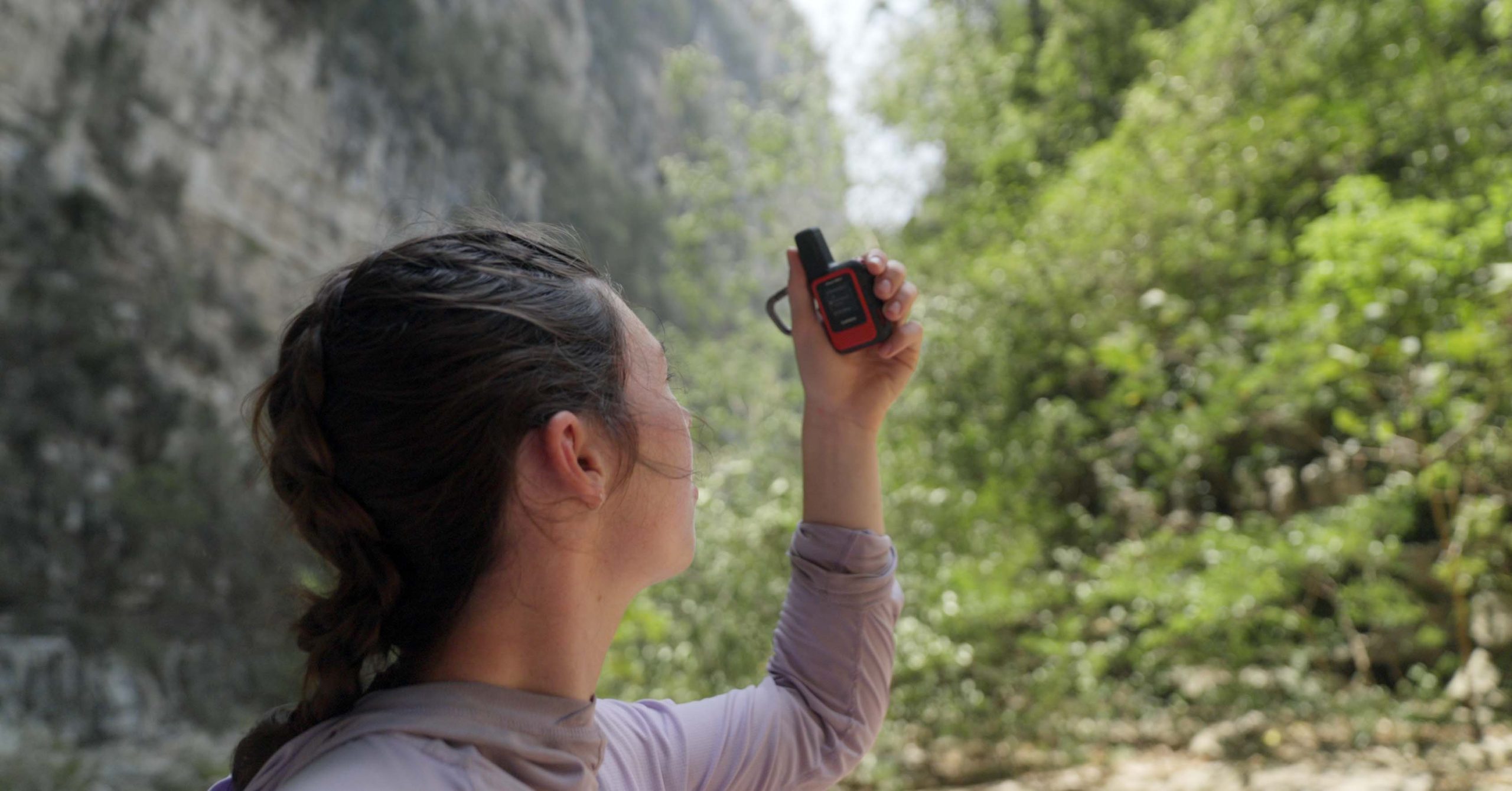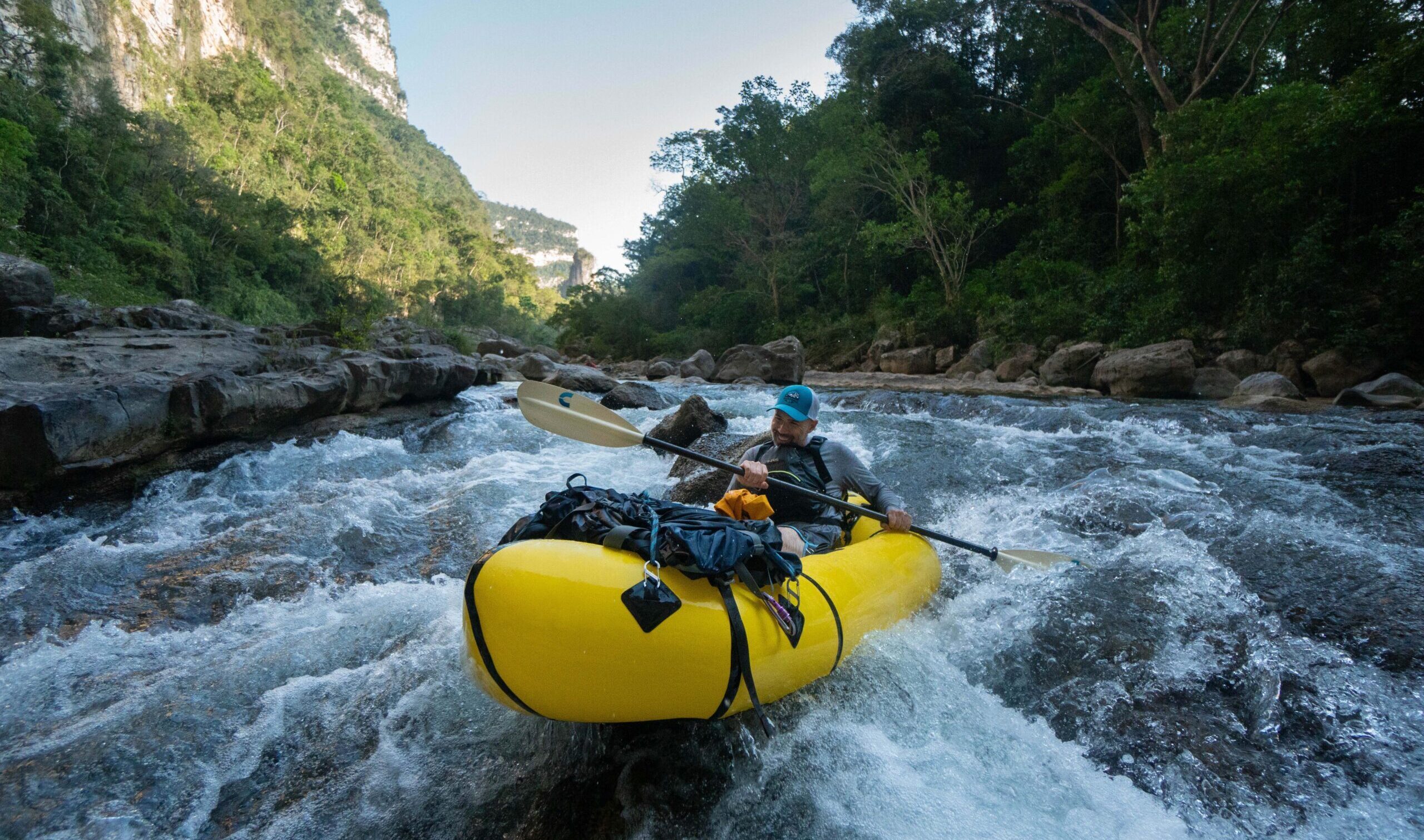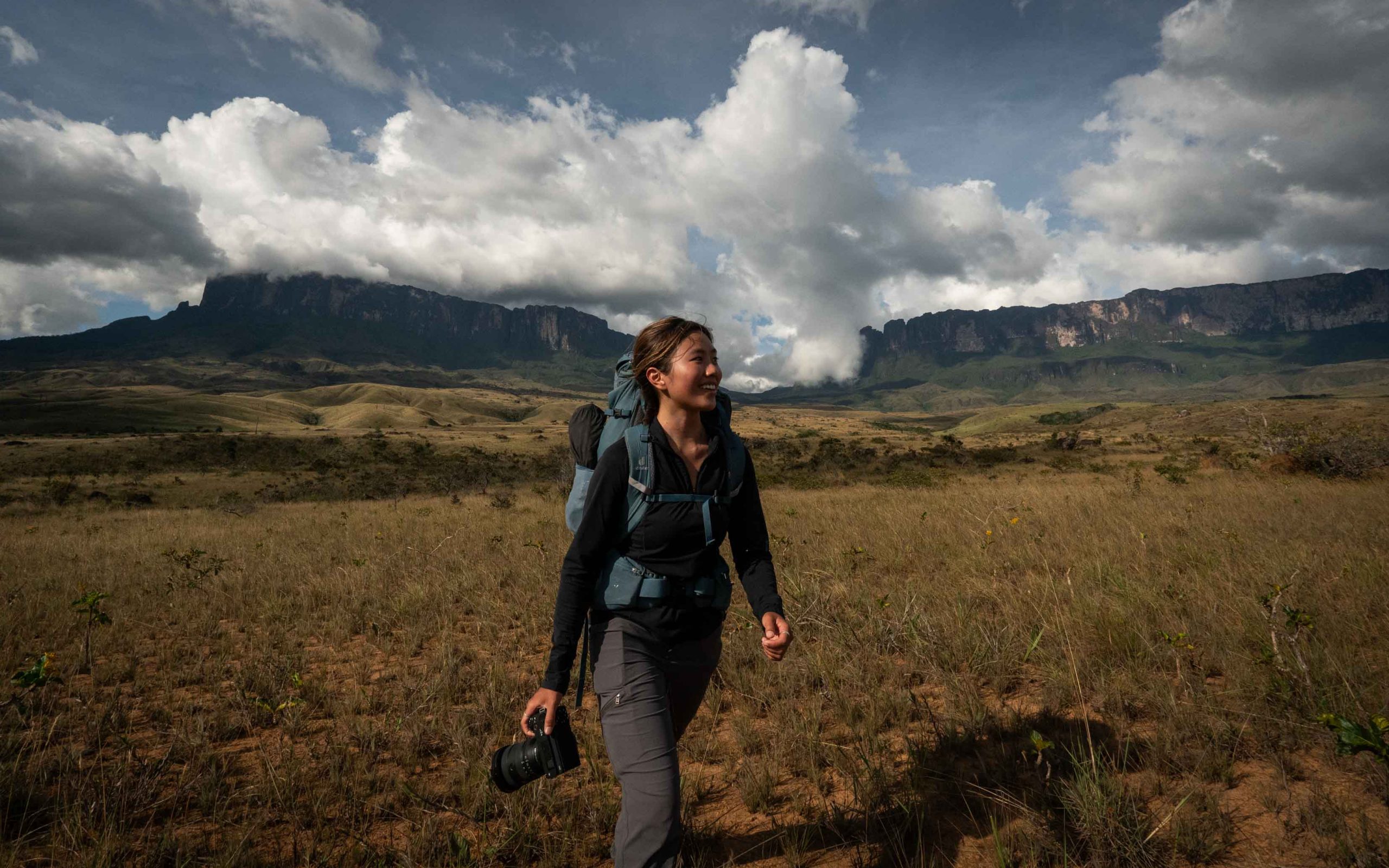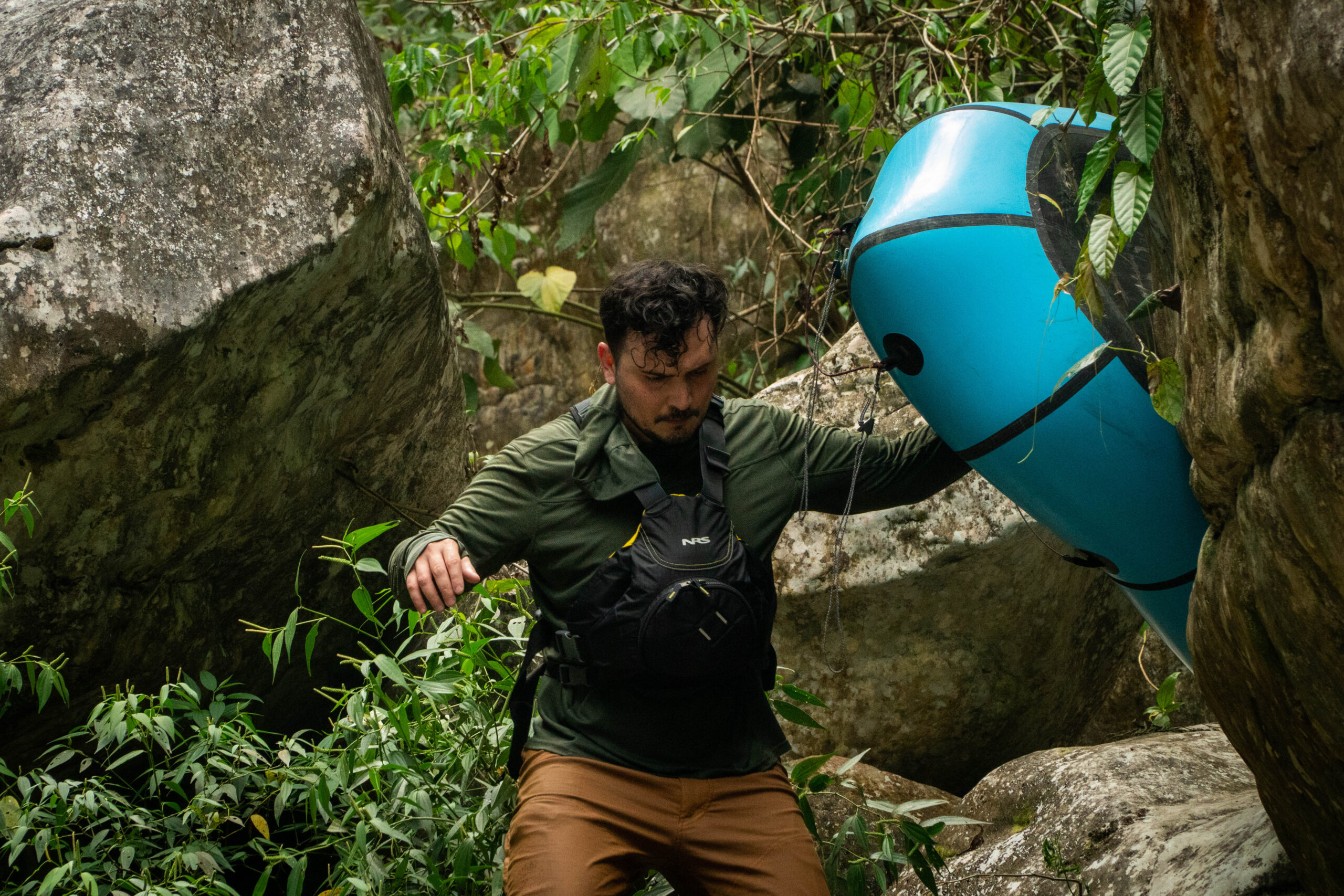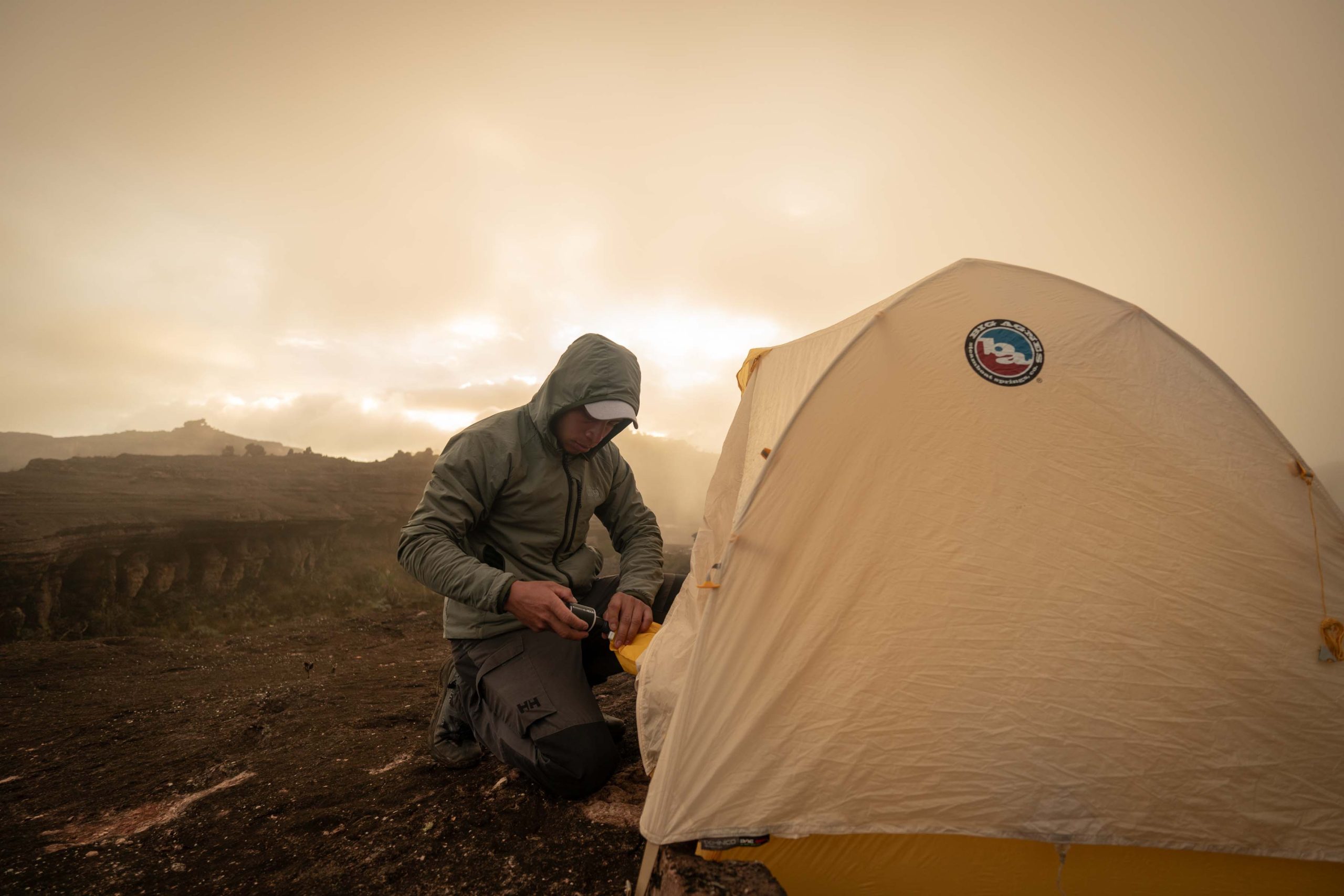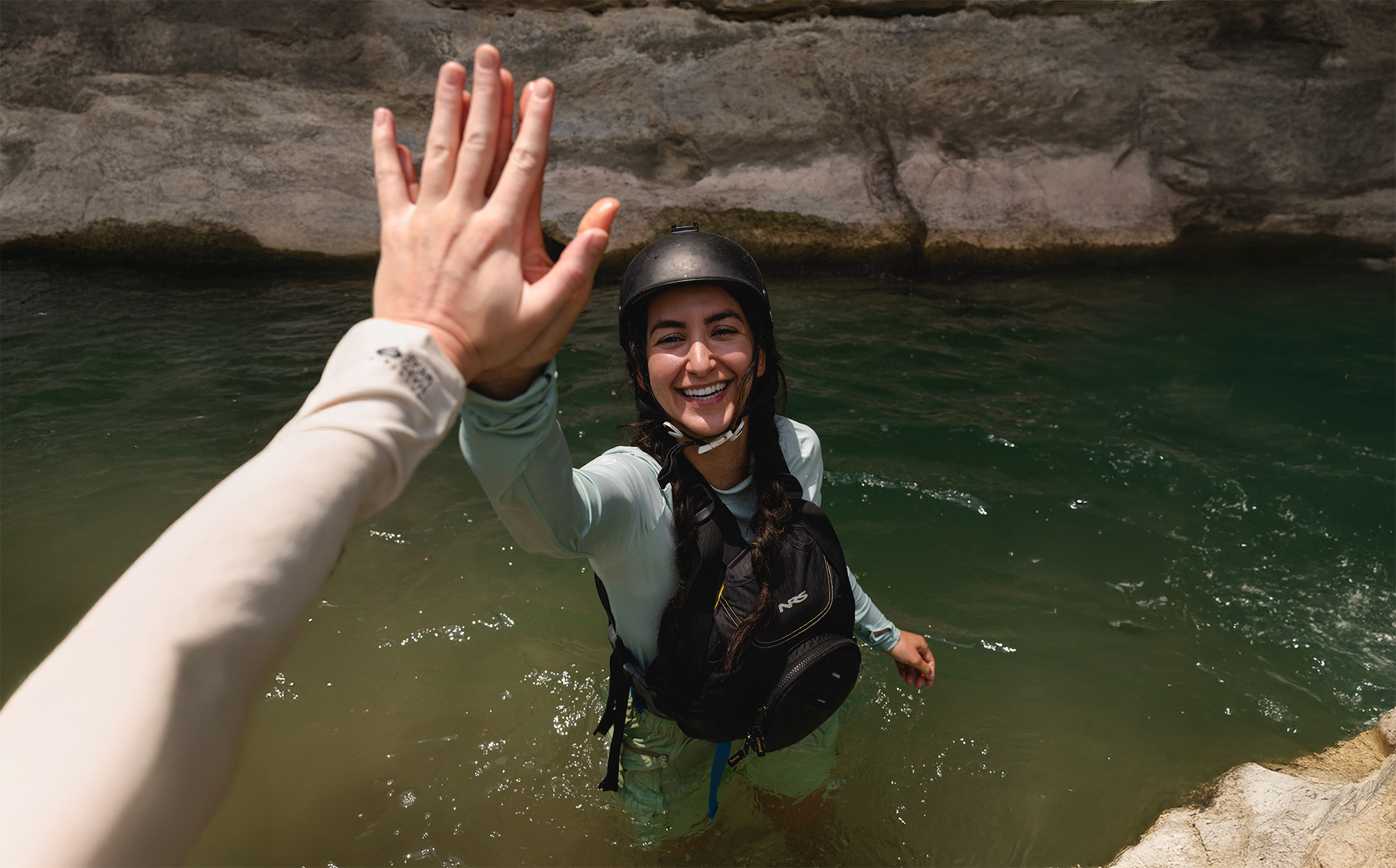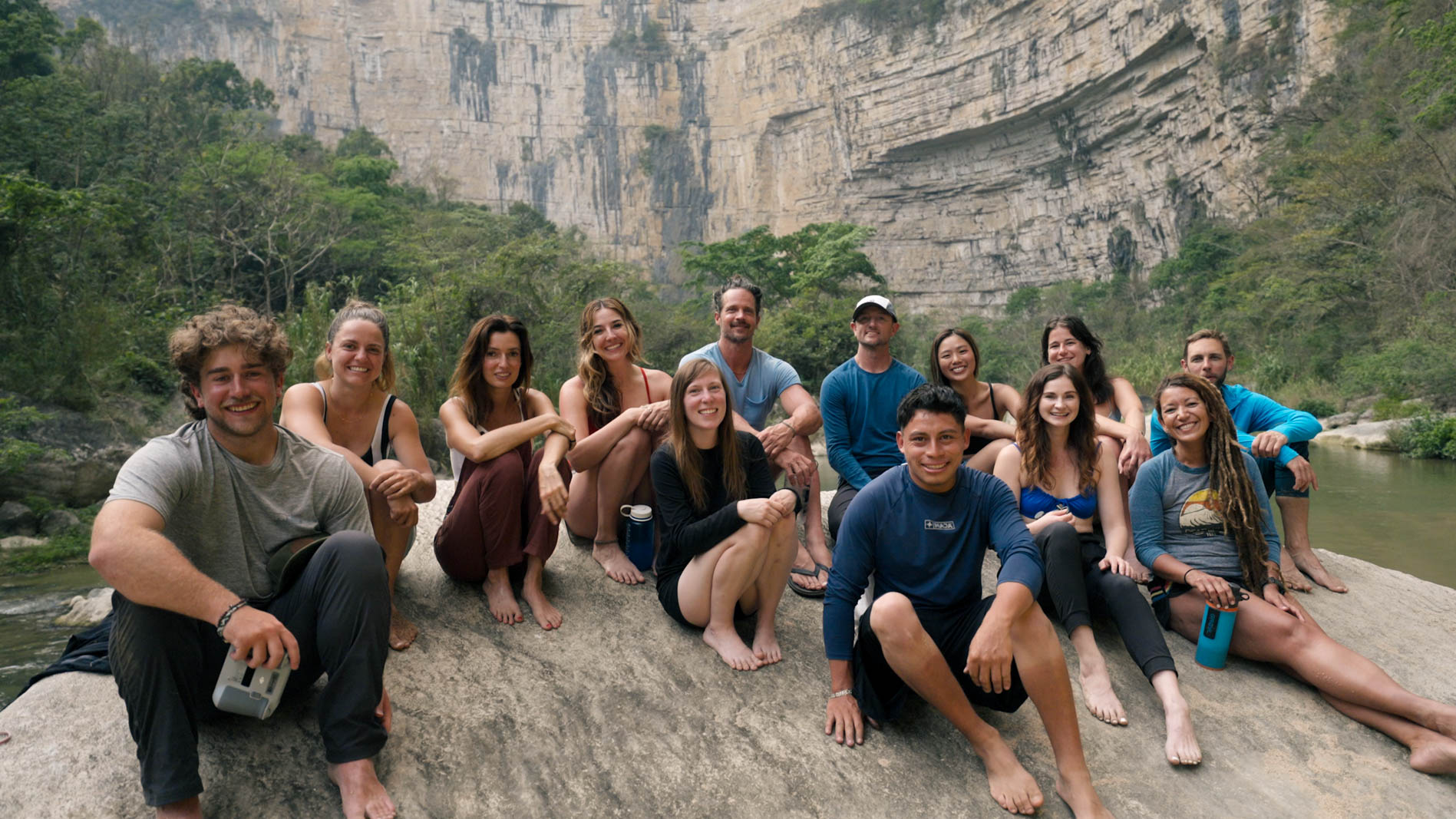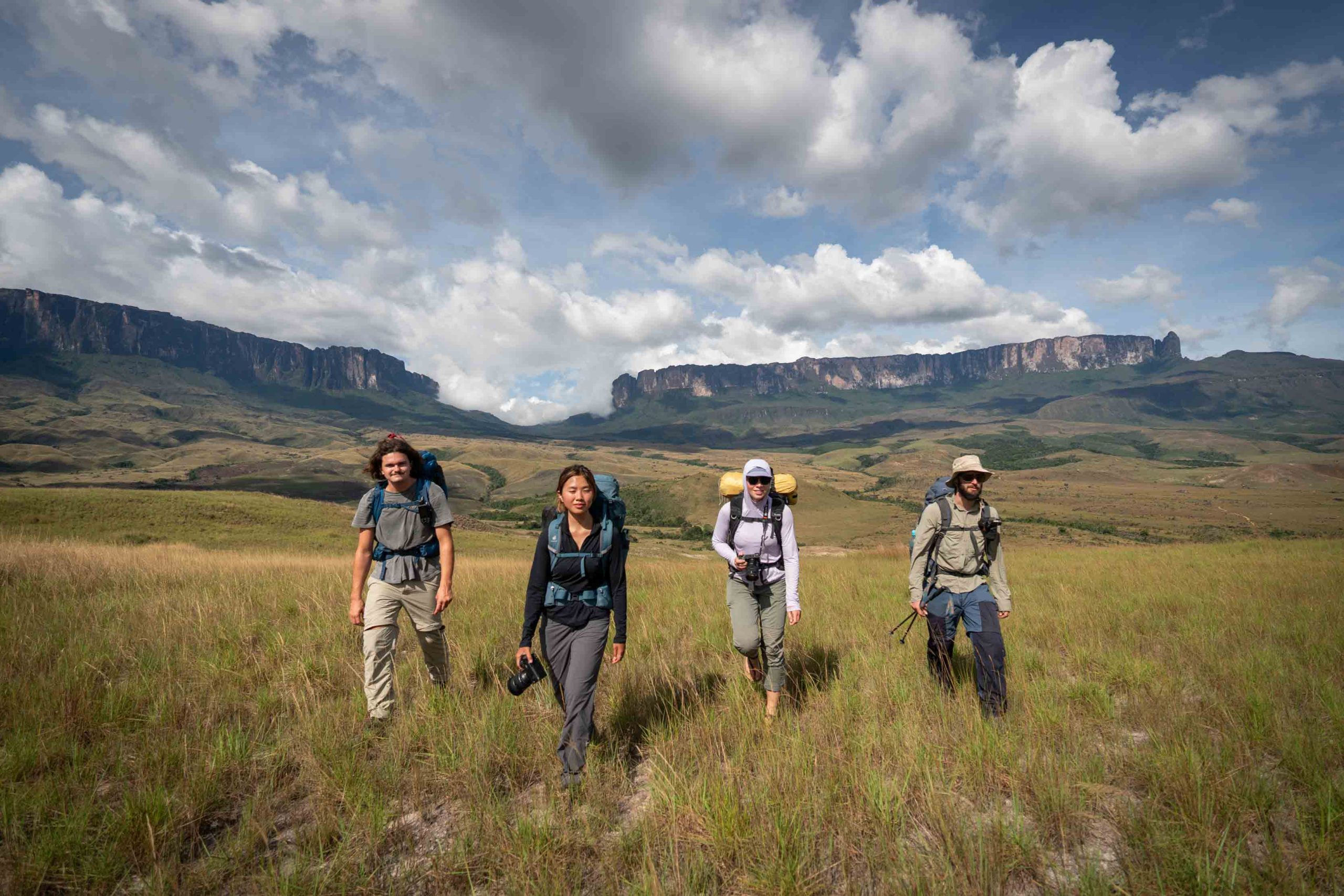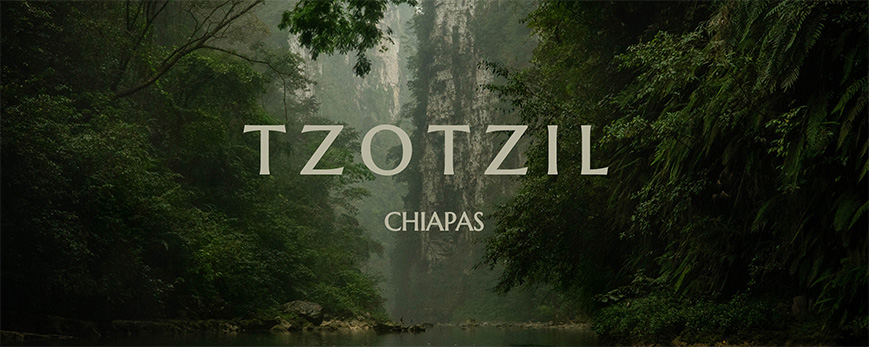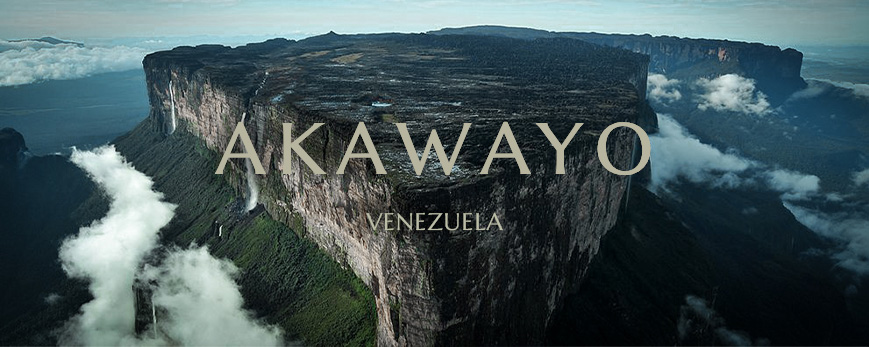Fear, Risk, and Reward: The Mental Game of Remote Expeditions
Remote expeditions are more than just physical challenges—they’re a mental game. Far from civilization, with nothing but your team and your instincts, you face fear, assess risk, and discover the immense rewards that come with pushing past your limits. This is where adventure meets mindset, and where the wild tests not just your body, but your resilience, courage, and determination.
ABOUT THE AUTHOR

NICOLE WALLACE
Biologist, Adventure Photographer
Head of Operations, Nicole is passionate about translating Nahua Expedition's conservation and sustainability goals into tangible results. With experience in start-ups and a background in Biology, Nicole is driven to build a tourism model that serves both local communities and the environment.
NAHUA EXPEDITIONS
25 Feb 2025 ・ 12 min read
The Mind as the Ultimate Battleground
Picture this: you’re deep in the wild, miles from civilization. No cell service, no easy exits—just you, your team, and the untamed world around you. The river roars ahead, a winding path of unknowns. The air is crisp, but your pulse is pounding. You’re about to push yourself further than you ever have before.
This is the mental game of remote expeditions—a battle of fear, risk, and reward. Sure, expeditions test your physical limits, but the real challenge? It’s in your mind.
Let’s dive into the psychology behind these adventures and what it takes to not just survive, but thrive in the wild.
The toughest terrain you’ll ever navigate is the space inside your head.
Fear: The Ever-Present Companion
The Common Fears of Remote Expeditions
Fear is a constant companion on remote expeditions, and for good reason—it’s what keeps us alert, prepared, and alive. But in the wild, fear takes on a different weight. It’s not just about the momentary jolts of adrenaline; it’s the lingering awareness that you are truly on your own, far from the safety nets of civilization.
One of the most unsettling fears is being completely off-the-grid. No instant communication, no quick rescue—just you, your team, and the vast, untamed landscape. The realization that every decision matters can be thrilling.
Then, there’s the unpredictability of wildlife encounters. Whether it’s the distant sound of a predator, the rustling of something unseen, or even a sudden swarm of insects, the wild has a way of reminding you that you’re in its territory.
Rivers add another layer of uncertainty. Packrafting through remote waterways means navigating strong currents, unseen obstacles, and the mystery of what lies beneath. Water is both a life source and a force to be reckoned with.
And finally, there’s the fear of failure—the worry that you won’t be able to complete the expedition, that your body won’t hold up, or that you won’t meet your own expectations. Sometimes, the greatest challenge isn’t the terrain—sometimes it’s the battle within.
Fear as a Double-Edged Sword
Fear isn’t just an obstacle—it’s a tool. When properly harnessed, it sharpens decision-making and forces respect for the environment. A healthy amount of fear makes you cautious, but too much fear can hold you back from experiencing something incredible. The key is finding balance.
You can’t erase fear, but you can reframe it—see it as a sign that you’re about to do something incredible.
Personal Experience: Facing Fear in the Wild
The wild has a way of pushing you to your limits, testing your resolve when you least expect it. I’ve felt fear more times than I can count—when the wind suddenly shifts, signalling an incoming storm, or when an unfamiliar rustle in the darkness stops me in my tracks. In those moments, fear is immediate, primal. But what matters most is how you respond to it.
I remind myself that the risks are real, but manageable. Proper training, preparation, and experience exist for a reason. The wild may be unpredictable, but the right knowledge and tools can turn fear into awareness instead of panic.
Then there’s the simple truth that fear is temporary; regret lasts longer. Some of the most incredible moments I’ve ever experienced—whether navigating a challenging rapid or pushing past exhaustion on a gruelling ascent—came right after a moment of doubt. If you let fear dictate your choices, you’ll miss out on the moments that make an expedition unforgettable.
And at the core of it all is willpower. Fear doesn’t get to win. We do. When we choose to keep moving forward, to trust ourselves and our team, we prove that fear is just another part of the journey—not the end of it.
Risk: The Balance Between Adventure and Safety
The Unique Risks of Remote Expeditions
Unlike casual outdoor adventures, remote expeditions strip away the safety nets of modern life. There are no ranger stations, no well-maintained trails, and no easy way out if things take a turn. Every decision carries weight, and the margin for error is much thinner.
One of the biggest realities of remote expeditions is that there’s no immediate help if something goes wrong. If an emergency arises, you can’t expect evacuation services to arrive within minutes. Evacuations, if needed, take time and careful coordination. Self-reliance isn’t just a skill—to an extent it’s a necessity.
Then there’s the terrain itself. Unlike maintained hiking trails, remote environments are unpredictable. Loose rock underfoot, fast-moving river currents, or dense jungle vegetation can create challenges that demand constant awareness and adaptability. The land dictates the pace, not the other way around.
And, of course, extreme conditions are always a factor. The wilderness doesn’t cater to comfort. Blistering heat, freezing cold, relentless rain, and sudden high winds will test both physical endurance and mental resilience. Those who thrive in these environments understand that nature isn’t something to fight against—it’s something to work with.
Adventure begins where certainty ends. In the wild, every step forward carries a risk worth taking.
Risk Assessment: How We Manage Risk Without Killing the Adventure
Managing risk doesn’t mean eliminating it—it means understanding it. Remote expeditions will always come with challenges, but the key is being prepared, not paralyzed.
Experience and training are the best defenses against danger. The more time you spend in the wild, the better you get at reading the land, anticipating problems, and making sound decisions under pressure. Knowledge builds confidence, and confidence leads to safer choices.
Pre-trip research and planning are just as crucial. Before setting out, we study the terrain, analyze weather patterns, and map out emergency routes. Knowing what to expect—even in an unpredictable environment—gives us the upper hand.
Finally, gear and preparation make all the difference. High-quality equipment, satellite communication, and first-aid training aren’t just nice to have; they’re essential. The right tools can turn a potential disaster into a manageable challenge, allowing us to embrace the adventure without unnecessary risk.
When the Weight of Risk Hits Hard
Nothing reminds you of risk like the moment when the weather turns. Imagine paddling through a canyon when the wind shifts, bringing in storm clouds. The air changes, and suddenly, you’re at the mercy of the wild. This is when preparation meets reality.
In these moments, experience, teamwork, and sound decision-making can mean the difference between a successful expedition and a serious problem.
Every expedition has a moment when the stakes feel real—what you do next defines the outcome.
The Mental Game: Thriving vs. Struggling
Why Mindset is Everything
Think of an expedition like a high-stakes adventure game—except this one is set to hard mode, and you don’t get extra lives. Out here, nature doesn’t care about your comfort, your schedule, or your expectations. Challenges will come, whether it’s brutal weather, exhaustion, or an unexpected obstacle in the terrain. Your mindset is what determines success or failure.
Expeditions rarely go exactly as planned. There will be moments of discomfort, doubt, and even fear. It’s how you handle the unexpected that counts. Do you panic, or do you adapt? Do you let frustration take over, or do you find a way forward? A strong mindset keeps you focused, problem-solving, and moving—no matter what the wild throws at you.
Resilience, adaptability, and a positive attitude separate those who thrive from those who struggle. A good mindset doesn’t mean ignoring the difficulties; it means embracing them, knowing that every challenge is an opportunity to grow.
The Attitude That Defines Success
The people who thrive on expeditions aren’t always the strongest or the most experienced. Strength helps, and experience matters, but neither guarantees success. The real key? Mindset.
Those who do well in the wild are the ones who stay positive even when things get tough. A long day of paddling, an unexpected storm, or a tough portage can break your spirit—unless you decide to push through with a good attitude.
The trips that have pushed me the hardest have by far been the most memorable and transformative trips of my life.
They also trust their team and their leaders. Expeditions aren’t solo missions. Success depends on working together, following guidance, and knowing when to lean on others.
Then there’s adaptability. The best adventurers adjust quickly to changing situations rather than getting stuck on what “should” have happened. The wild doesn’t follow a script, so you shouldn’t expect to either!
And finally, those who thrive are the ones who embrace discomfort instead of fighting it. Remote expeditions will test you—physically, mentally, and emotionally. The sooner you accept that challenge as part of the experience, the more rewarding the journey becomes.
Preparing the Mind for the Expedition
Before stepping into the wild, mental preparation is just as important as physical training. A strong mind can carry you through challenges that muscles alone can’t handle.
Pre-trip communication is the first step. Setting expectations, answering questions, and building trust among the team ensures that everyone is on the same page before the expedition even begins. When people know what to expect, they feel more prepared to face it.
I remind myself that on the other side of my worries and fears are life changing memories and accomplishments.
It also helps to understand the challenge ahead. Remote expeditions aren’t easy—but that’s the point. The struggle, the unpredictability, and the discomfort are what make the experience meaningful. Accepting that reality from the start makes it easier to push through when things get tough.
And, of course, having the right gear matters. Confidence starts with preparation, and quality equipment—whether it’s a reliable packraft, weatherproof layers, or a solid first-aid kit—ensures you’re ready for whatever the wilderness throws at you.
Confidence isn’t about knowing it will be easy—it’s about knowing you’re ready for whatever comes.
The Reward: Growth, Transformation, and Connection
The High of Conquering Fear and Risk
There’s no feeling quite like it. The moment you push through fear and face the unknown, something changes. The doubts that once held you back disappear, replaced by the rush of knowing you did it.
Overcoming risk isn’t just about making it through—it’s about proving to yourself that you’re capable of more than you ever imagined. Standing at the end of an expedition, looking back at the challenges you conquered, you don’t just feel accomplished—you feel limitless.
It’s a high that stays with you long after the journey ends. Every obstacle faced, every fear overcome, becomes a reminder of your own resilience. And once you’ve experienced that feeling, you start to wonder: What else am I capable of?
A Guest's Transformative Experience
One of our guests had never left her home country before. Her first international trip? Our Tzotzil packrafting expedition in Mexico.
She had never paddled rapids before. Never camped in the wild. But she rose to the challenge, pushed through the fear, and conquered it all. By the end, she wasn’t just an expedition participant—she was an adventurer.
What you gain from an expedition isn’t just a memory—it’s a new version of yourself.
The Lasting Rewards: Deep Friendships and Lifelong Lessons
One of the biggest takeaways from remote expeditions isn’t just personal growth—it’s the bonds formed through shared challenge. There’s something about facing the wild together that forges connections unlike anything else.
In small group expeditions, strangers quickly become teammates, and teammates often become lifelong friends. Trust and camaraderie build with every rapid crossed, every tough decision made, and every moment of uncertainty faced together. You learn to rely on each other, celebrate victories together, and push through the tough moments as a team.
Many participants stay in touch long after the trip ends, swapping stories, sharing laughs, and even planning future adventures together. These experiences don’t just fade away—they become part of who you are. The friendships, the lessons, the memories—they stay with you for life.
You don’t just come back with stories; you come back with people who lived them with you.
The Mental Game Never Ends
At the end of the day, the mental game of remote expeditions is what defines the experience. It’s not just about the distance traveled or the obstacles overcome—it’s about how you face them.
Fear will be there—but so will the courage to push past it. Every moment of uncertainty is an opportunity to grow, to trust yourself, and to step beyond your comfort zone.
Risk is part of the adventure—but preparation and mindset turn it into something incredible. With the right approach, risk doesn’t hold you back—it pushes you forward.
And the reward? An unmatched sense of achievement, personal growth, and friendships that last a lifetime. These are the moments that stay with you, the lessons that shape you, and the experiences that redefine what you thought was possible.
So if you’re thinking about taking on a remote expedition, know this: the wild will test you, but it will also change you. The real journey isn’t just through nature—it’s through the mind.
Are you ready?
If you’re ready to step outside your comfort zone and take on something unforgettable, Nahua Expeditions has a few expeditions that will challenge you, inspire you, and leave you with stories for a lifetime. Whether it’s navigating remote regions, pushing past your limits, or forging connections in the wild—we’re here to make it happen. Let’s go.
Stay Safe & Be Prepared: The information provided in this article is for general informational purposes only. Outdoor recreation involves inherent risks, and individuals are fully responsible for their own safety. Nahua Expeditions and its authors disclaim any liability arising directly or indirectly from the use of the information from this article.
Fear, Risk, and Reward: The Mental Game of Remote Expeditions
Remote expeditions are more than just physical challenges—they’re a mental game. Far from civilization, with nothing but your team and your instincts, you face fear, assess risk, and discover the immense rewards that come with pushing past your limits. This is where adventure meets mindset, and where the wild tests not just your body, but your resilience, courage, and determination.
25 FEB 2025 ・ 12 min read
Nahua Expeditions
The Mind as the Ultimate Battleground
Picture this: you’re deep in the wild, miles from civilization. No cell service, no easy exits—just you, your team, and the untamed world around you. The river roars ahead, a winding path of unknowns. The air is crisp, but your pulse is pounding. You’re about to push yourself further than you ever have before.
This is the mental game of remote expeditions—a battle of fear, risk, and reward. Sure, expeditions test your physical limits, but the real challenge? It’s in your mind.
Let’s dive into the psychology behind these adventures and what it takes to not just survive, but thrive in the wild.
The toughest terrain you’ll ever navigate is the space inside your head.
Fear: The Ever-Present Companion
The Common Fears of Remote Expeditions
Fear is a constant companion on remote expeditions, and for good reason—it’s what keeps us alert, prepared, and alive. But in the wild, fear takes on a different weight. It’s not just about the momentary jolts of adrenaline; it’s the lingering awareness that you are truly on your own, far from the safety nets of civilization.
One of the most unsettling fears is being completely off-the-grid. No instant communication, no quick rescue—just you, your team, and the vast, untamed landscape. The realization that every decision matters can be thrilling.
Then, there’s the unpredictability of wildlife encounters. Whether it’s the distant sound of a predator, the rustling of something unseen, or even a sudden swarm of insects, the wild has a way of reminding you that you’re in its territory.
Rivers add another layer of uncertainty. Packrafting through remote waterways means navigating strong currents, unseen obstacles, and the mystery of what lies beneath. Water is both a life source and a force to be reckoned with.
And finally, there’s the fear of failure—the worry that you won’t be able to complete the expedition, that your body won’t hold up, or that you won’t meet your own expectations. Sometimes, the greatest challenge isn’t the terrain—sometimes it’s the battle within.
Fear as a Double-Edged Sword
And finally, there’s the fear of failure—the worry that you won’t be able to complete the expedition, that your body won’t hold up, or that you won’t meet your own expectations. Sometimes, the greatest challenge isn’t the terrain—sometimes it’s the battle within.
You can’t erase fear, but you can reframe it—see it as a sign that you’re about to do something incredible.
Personal Experience: Facing Fear in the Wild
The wild has a way of pushing you to your limits, testing your resolve when you least expect it. I’ve felt fear more times than I can count—when the wind suddenly shifts, signalling an incoming storm, or when an unfamiliar rustle in the darkness stops me in my tracks. In those moments, fear is immediate, primal. But what matters most is how you respond to it.
I remind myself that the risks are real, but manageable. Proper training, preparation, and experience exist for a reason. The wild may be unpredictable, but the right knowledge and tools can turn fear into awareness instead of panic.
Then there’s the simple truth that fear is temporary; regret lasts longer. Some of the most incredible moments I’ve ever experienced—whether navigating a challenging rapid or pushing past exhaustion on a gruelling ascent—came right after a moment of doubt. If you let fear dictate your choices, you’ll miss out on the moments that make an expedition unforgettable.
And at the core of it all is willpower. Fear doesn’t get to win. We do. When we choose to keep moving forward, to trust ourselves and our team, we prove that fear is just another part of the journey—not the end of it.
Risk: The Balance Between Adventure and Safety
The Unique Risks of Remote Expeditions
Unlike casual outdoor adventures, remote expeditions strip away the safety nets of modern life. There are no ranger stations, no well-maintained trails, and no easy way out if things take a turn. Every decision carries weight, and the margin for error is much thinner.
One of the biggest realities of remote expeditions is that there’s no immediate help if something goes wrong. If an emergency arises, you can’t expect evacuation services to arrive within minutes. Evacuations, if needed, take time and careful coordination. Self-reliance isn’t just a skill—to an extent it’s a necessity.
Then there’s the terrain itself. Unlike maintained hiking trails, remote environments are unpredictable. Loose rock underfoot, fast-moving river currents, or dense jungle vegetation can create challenges that demand constant awareness and adaptability. The land dictates the pace, not the other way around.
And, of course, extreme conditions are always a factor. The wilderness doesn’t cater to comfort. Blistering heat, freezing cold, relentless rain, and sudden high winds will test both physical endurance and mental resilience. Those who thrive in these environments understand that nature isn’t something to fight against—it’s something to work with.
Adventure begins where certainty ends. In the wild, every step forward carries a risk worth taking.
Risk Assessment: How we Manage Risk Without Killing the Adventure
Managing risk doesn’t mean eliminating it—it means understanding it. Remote expeditions will always come with challenges, but the key is being prepared, not paralyzed.
Experience and training are the best defenses against danger. The more time you spend in the wild, the better you get at reading the land, anticipating problems, and making sound decisions under pressure. Knowledge builds confidence, and confidence leads to safer choices.
Pre-trip research and planning are just as crucial. Before setting out, we study the terrain, analyze weather patterns, and map out emergency routes. Knowing what to expect—even in an unpredictable environment—gives us the upper hand.
Finally, gear and preparation make all the difference. High-quality equipment, satellite communication, and first-aid training aren’t just nice to have; they’re essential. The right tools can turn a potential disaster into a manageable challenge, allowing us to embrace the adventure without unnecessary risk.
When the Weight of Risk Hits Hard
Nothing reminds you of risk like the moment when the weather turns. Imagine paddling through a canyon when the wind shifts, bringing in storm clouds. The air changes, and suddenly, you’re at the mercy of the wild. This is when preparation meets reality.
In these moments, experience, teamwork, and sound decision-making can mean the difference between a successful expedition and a serious problem.
Every expedition has a moment when the stakes feel real—what you do next defines the outcome.
The Mental Game: Thriving vs. Struggling
Why mindset is Everything
Think of an expedition like a high-stakes adventure game—except this one is set to hard mode, and you don’t get extra lives. Out here, nature doesn’t care about your comfort, your schedule, or your expectations. Challenges will come, whether it’s brutal weather, exhaustion, or an unexpected obstacle in the terrain. Your mindset is what determines success or failure.
Expeditions rarely go exactly as planned. There will be moments of discomfort, doubt, and even fear. It’s how you handle the unexpected that counts. Do you panic, or do you adapt? Do you let frustration take over, or do you find a way forward? A strong mindset keeps you focused, problem-solving, and moving—no matter what the wild throws at you.
Resilience, adaptability, and a positive attitude separate those who thrive from those who struggle. A good mindset doesn’t mean ignoring the difficulties; it means embracing them, knowing that every challenge is an opportunity to grow.
The Attitude That Defines Success
The people who thrive on expeditions aren’t always the strongest or the most experienced. Strength helps, and experience matters, but neither guarantees success. The real key? Mindset.
Those who do well in the wild are the ones who stay positive even when things get tough. A long day of paddling, an unexpected storm, or a tough portage can break your spirit—unless you decide to push through with a good attitude.
The trips that have pushed me the hardest have by far been the most memorable and transformative trips of my life.
They also trust their team and their leaders. Expeditions aren’t solo missions. Success depends on working together, following guidance, and knowing when to lean on others.
Then there’s adaptability. The best adventurers adjust quickly to changing situations rather than getting stuck on what “should” have happened. The wild doesn’t follow a script, so you shouldn’t expect to either!
And finally, those who thrive are the ones who embrace discomfort instead of fighting it. Remote expeditions will test you—physically, mentally, and emotionally. The sooner you accept that challenge as part of the experience, the more rewarding the journey becomes.
Preparing the Mind for the Expedition
Before stepping into the wild, mental preparation is just as important as physical training. A strong mind can carry you through challenges that muscles alone can’t handle.
Pre-trip communication is the first step. Setting expectations, answering questions, and building trust among the team ensures that everyone is on the same page before the expedition even begins. When people know what to expect, they feel more prepared to face it.
I remind myself that on the other side of my worries and fears are life changing memories and accomplishments.
It also helps to understand the challenge ahead. Remote expeditions aren’t easy—but that’s the point. The struggle, the unpredictability, and the discomfort are what make the experience meaningful. Accepting that reality from the start makes it easier to push through when things get tough.
And, of course, having the right gear matters. Confidence starts with preparation, and quality equipment—whether it’s a reliable packraft, weatherproof layers, or a solid first-aid kit—ensures you’re ready for whatever the wilderness throws at you.
Confidence isn’t about knowing it will be easy—it’s about knowing you’re ready for whatever comes.
The Reward: Growth, Transformation, and Connection
The High of Conquering Fear and Risk
There’s no feeling quite like it. The moment you push through fear and face the unknown, something changes. The doubts that once held you back disappear, replaced by the rush of knowing you did it.
Overcoming risk isn’t just about making it through—it’s about proving to yourself that you’re capable of more than you ever imagined. Standing at the end of an expedition, looking back at the challenges you conquered, you don’t just feel accomplished—you feel limitless.
It’s a high that stays with you long after the journey ends. Every obstacle faced, every fear overcome, becomes a reminder of your own resilience. And once you’ve experienced that feeling, you start to wonder: What else am I capable of?
A Guest's Transformative Experience
One of our guests had never left her home country before. Her first international trip? Our Tzotzil packrafting expedition in Mexico.
She had never paddled rapids before. Never camped in the wild. But she rose to the challenge, pushed through the fear, and conquered it all. By the end, she wasn’t just an expedition participant—she was an adventurer.
What you gain from an expedition isn’t just a memory—it’s a new version of yourself.
The Lasting Rewards: Deep Friendships and Lifelong Lessons
One of the biggest takeaways from remote expeditions isn’t just personal growth—it’s the bonds formed through shared challenge. There’s something about facing the wild together that forges connections unlike anything else.
In small group expeditions, strangers quickly become teammates, and teammates often become lifelong friends. Trust and camaraderie build with every rapid crossed, every tough decision made, and every moment of uncertainty faced together. You learn to rely on each other, celebrate victories together, and push through the tough moments as a team.
Many participants stay in touch long after the trip ends, swapping stories, sharing laughs, and even planning future adventures together. These experiences don’t just fade away—they become part of who you are. The friendships, the lessons, the memories—they stay with you for life.
You don’t just come back with stories; you come back with people who lived them with you.
The Mental Game Never Ends
At the end of the day, the mental game of remote expeditions is what defines the experience. It’s not just about the distance traveled or the obstacles overcome—it’s about how you face them.
Fear will be there—but so will the courage to push past it. Every moment of uncertainty is an opportunity to grow, to trust yourself, and to step beyond your comfort zone.
Risk is part of the adventure—but preparation and mindset turn it into something incredible. With the right approach, risk doesn’t hold you back—it pushes you forward.
And the reward? An unmatched sense of achievement, personal growth, and friendships that last a lifetime. These are the moments that stay with you, the lessons that shape you, and the experiences that redefine what you thought was possible.
So if you’re thinking about taking on a remote expedition, know this: the wild will test you, but it will also change you. The real journey isn’t just through nature—it’s through the mind.
Are you ready?
What's Next?
If you’re ready to step outside your comfort zone and take on something unforgettable, Nahua Expeditions has a few expeditions that will challenge you, inspire you, and leave you with stories for a lifetime. Whether it’s navigating remote regions, pushing past your limits, or forging connections in the wild—we’re here to make it happen. Let’s go.
Stay Safe & Be Prepared: The information provided in this article is for general informational purposes only. Outdoor recreation involves inherent risks, and individuals are fully responsible for their own safety. Nahua Expeditions and its authors disclaim any liability arising directly or indirectly from the use of the information from this article.

